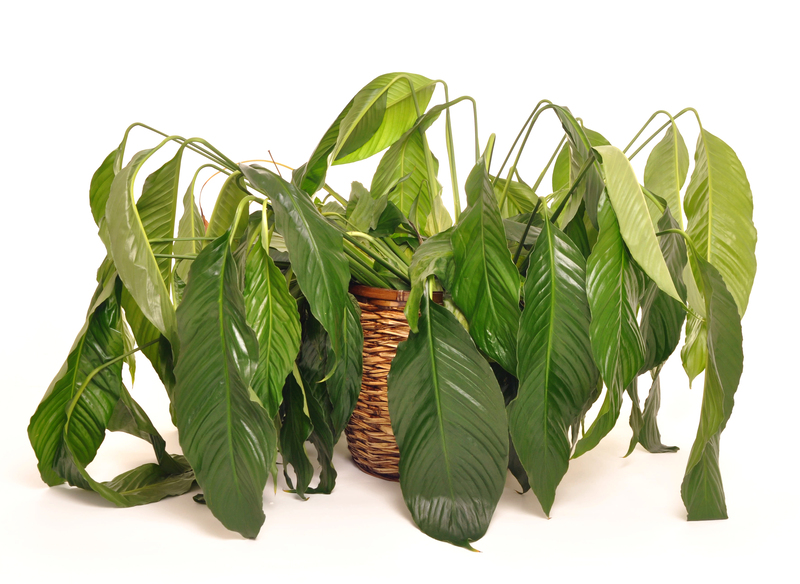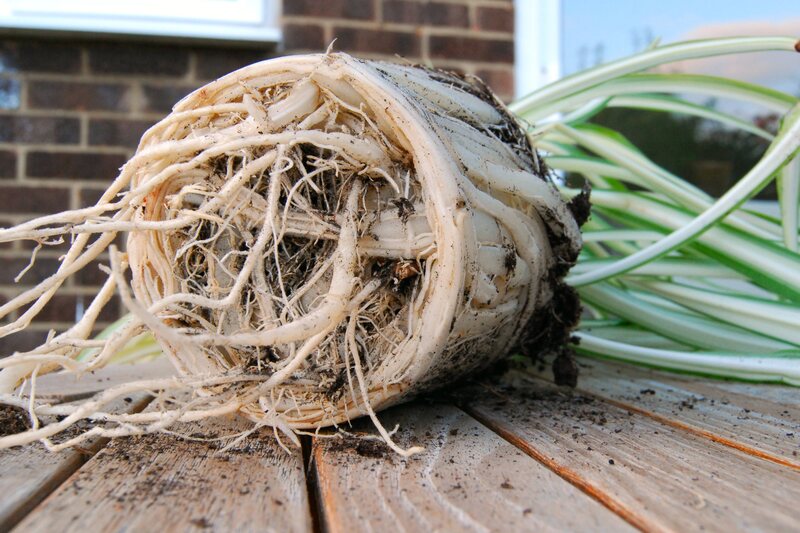Your First Garden: 9 Essential Tips to Start With
Posted on 30/06/2025
Your First Garden: 9 Essential Tips to Start With
Starting your first garden can be both exciting and overwhelming--especially if you're new to gardening. With so much advice online, it's easy to get lost among the recommendations. That's why we've distilled the process to nine essential garden tips to help you create a thriving green space. Whether you have a spacious backyard or a cozy balcony, these guidelines will lay the foundation for a gorgeous, productive, and enjoyable beginner's garden.

Why Start Gardening?
For centuries, humans have cultivated the earth not just for food, but for beauty and relaxation. Today, gardening is proven to:
- Reduce stress and improve mental health
- Boost physical activity
- Provide fresh, homegrown produce
- Enhance outdoor spaces and curb appeal
1. Understand Your Space and Light
Before investing in seeds, soil, or tools, observe where you intend to grow your garden. Understanding your unique gardening space and its sunlight exposure is crucial.
Evaluate Sunlight Conditions
Plants need different amounts of sunlight. Observe your space and track where the sun shines most throughout the day. Most vegetables and many flowers thrive in full sun (at least 6 hours per day). Shadier areas are suitable for ferns, hostas, or certain delicate blooms.
- Full Sun: 6+ hours of direct light
- Partial Shade: 4-6 hours of sunlight
- Shade: Less than 4 hours
*Tip:* Use a sunlight calculator or simply observe your garden's exposure at different times of the day.
2. Choose the Right Location
Proximity matters! Place your garden where you can easily see and access it.
- Close to a water source: Make watering convenient.
- Visible from your home: You're more likely to care for and notice issues.
- Good drainage: Avoid areas that stay soggy after rain.
- Away from tree roots: Trees compete for nutrients and moisture.
Your first-time garden will be easier to maintain if it's easy to reach, see, and enjoy!
3. Get to Know Your Soil
The backbone of all healthy gardens is quality soil. No matter how good your seeds or sunlight are, plants won't thrive without the right foundation.
Test Your Soil
Buy a soil test kit or send a sample to your local extension office. Key things to test for:
- pH Level: Most vegetables prefer a pH of 6-7.
- Nutrient Content: Nitrogen, phosphorus, and potassium are essential.
*If your soil is heavy clay or sandy, work in compost or organic amendments for a better texture and fertility.*
4. Start Small and Simple
Many first-time gardeners get overambitious and feel overwhelmed. Instead, start with a manageable space, such as:
- One or two raised beds (4' x 8' each)
- A few large containers
- A small in-ground patch
5. Select the Right Plants
One of the most exciting steps is choosing what to grow! When making your choices, be practical and focus on beginner-friendly options.
Tips for Choosing Plants
- Check your growing zone: Use the USDA Hardiness Zone Map to determine which plants can handle your climate.
- Start with easy-to-grow varieties: Lettuce, beans, radishes, tomatoes, marigolds, and zinnias are resilient picks.
- Plant what you eat or enjoy looking at: Edible herbs, salad greens, or cut flowers provide satisfaction and utility.
- Read plant tags: They offer important info on spacing, sunlight, and watering.
By prioritizing the right plants for your first-time garden, you'll boost your chances of a rewarding harvest.
6. Gather Essential Tools
You don't need a shed full of fancy gadgets to succeed. With a few essential gardening tools, you can handle just about any task.
- Hand trowel: For planting and transplanting
- Gloves: Protect your hands from blisters and thorns
- Pruners: Trim herbs, flowers, and veggies
- Watering can or hose: Efficient watering is key
- Gardening fork: Loosen soil, remove weeds
- Rake: Smooth soil or clear leaves
*Invest in quality basic tools--they'll last for years and make your beginner garden more enjoyable.*
7. Learn to Water Wisely
Proper watering is crucial; too little or too much can harm your plants. Here's how to foster healthy root systems:
- Water deeply, but less frequently: This encourages roots to grow deeper.
- Water early in the day: Reduces evaporation and prevents diseases.
- Avoid overhead watering: Direct water at the base of plants to avoid leaf diseases.
- Check soil moisture: Stick a finger into the soil 2-3 inches; if it feels dry, it's time to water.
Smart watering ensures your garden thrives and saves you effort long-term.
8. Mulch and Prevent Weeds
Mulch is your secret weapon for a healthy garden, especially for first-time gardeners.
- Retains moisture: Mulch keeps water in the soil and reduces how often you need to water.
- Suppresses weeds: Prevents weed seeds from sprouting.
- Improves soil health: Organic mulches like straw, leaves, or bark decompose and enrich your soil.
Apply a 2-3 inch layer around your plants--but keep mulch an inch away from stems to avoid rot.
9. Practice Patience & Gentle Maintenance
Gardening is about learning and adapting, not instant results. Remember these key maintenance tips:
- Check your garden daily: Watch for pests, wilting, or disease.
- Harvest regularly: Picking produce and flowers encourages more growth.
- Remove dead or diseased leaves: This keeps plants healthy and reduces spread.
- Don't be discouraged by setbacks: Mistakes are part of the process--every new gardener faces them!
Frequently Asked Questions for First-Time Gardeners
How do I keep pests out of my garden?
Start with healthy soil, strong plants, and regular garden checks. Remove pests by hand, use floating row covers, or consider natural remedies like neem oil. Avoid pesticides that might harm pollinators.
When should I plant my first garden?
Cool-season crops like lettuce, peas, and spinach can be sown in early spring. Warm-season plants such as tomatoes and squash perform best after the risk of frost has passed. Check your local frost dates for guidance.
How much time does gardening take?
Your beginner garden may require more time during planting and harvest seasons. On average, you'll spend an hour per week for a small garden--less as you learn efficient routines.

Bonus Tips: Sustainable & Enjoyable Gardening
Once you've mastered these nine essential gardening steps, consider these extra tips to enhance your gardening journey:
- Attract pollinators: Plant flowers like sunflowers, lavenders, and coneflowers to support bees and butterflies.
- Compost kitchen waste: Turn scraps into garden gold for richer soil.
- Get kids involved: Gardening is a fun, educational activity for all ages.
- Document your progress: Keep a garden journal--or share photos online!
Ultimately, the best gardens reflect their caretakers. As you grow your first garden, remember it's not just about plants, but about nurturing yourself, your family, and your environment.
Conclusion: Embrace the Joy of Gardening
With these nine essential first-garden tips, you are well on your way to a vibrant and sustainable green space. Remember to choose the right location, start small, focus on healthy soil and simple plant varieties, and learn through each stage. Above all, enjoy each moment in your first garden and celebrate every new leaf, bud, and bloom. Happy gardening!



